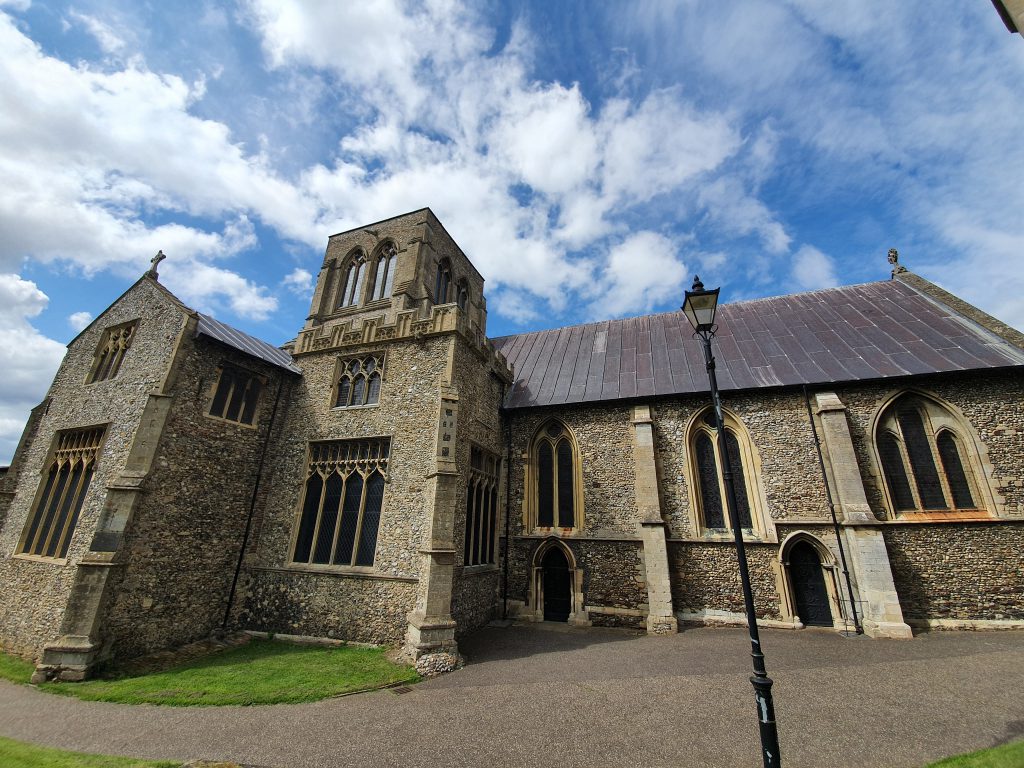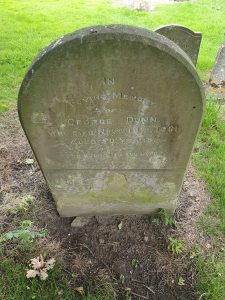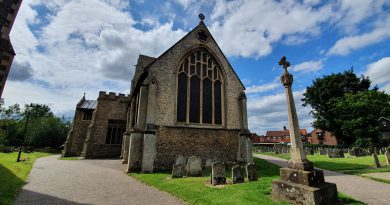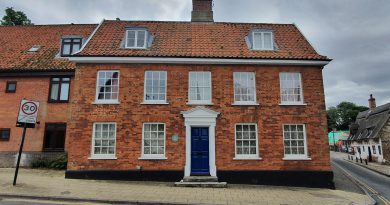Dereham – Church of St. Nicholas (George Dunn)
There was no particular reason that I photographed this gravestone at the Church of St. Nicholas in Dereham, but it’s of George Dunn, who died on 12 December 1861 at the age of 50.
The probate record remains for George, which noted:
“Effects worth under £450. The will of George Dunn, late of East Dereham, in the County of Norfolk. Shoemaker, deceased who died on 12 December 1861 at East Dereham, aforesaid was proved at Norwich by the oath of George Jackson of East Dereham, aforesaid carpenter and sole executor”.
The effects value were in bands, of which £450 wasn’t the lowest, and very roughly (and relying on the National Archives currency calculator), it was probably around £25,000 in today’s money. George wasn’t likely a poor man, although that’s relative in this period, during his life as he was a registered elector due to being a freeholder property owner.
George was born in April 1811, the son of John Dunn, and he was baptised at the Church of St. Nicholas. He married Susan Clarke on 30 October 1844, again at the same church. The 1851 census gives a picture of what life was like for George, when he was living on Norwich Road in Dereham. He was aged 40, working as a shoemaker, married to Susan Dunn (born in Thetford), who was aged 37, as well as living with his children William R (aged 5) and Anna J (aged 4). He was also living with his father, John Dunn, who had been born in 1782 and worked as a tailor, by this time aged 69 and widowed.
By the 1861 census, they lived in the same property as in 1851, with John and Susan still living with William and Anna. William was by this time working as a watchmaker and Anna was still at school. Still teenagers, it must have been a difficult life for the family when George died a few months after the census was taken.
It was evident just how common theft was in Victorian Britain, with George being a victim of crime when in July 1855 a pair of wellington boots was stolen from his shop. Maria Barlow, an eighteen-year old bootmaker, was found guilty of the crime and sent to prison for six months.
The church in Dereham clearly played a great part in George’s life. From when he was baptised with his family present, excited about the future, to when he got married to what I assume was more excitement and then to his funeral service and burial.





